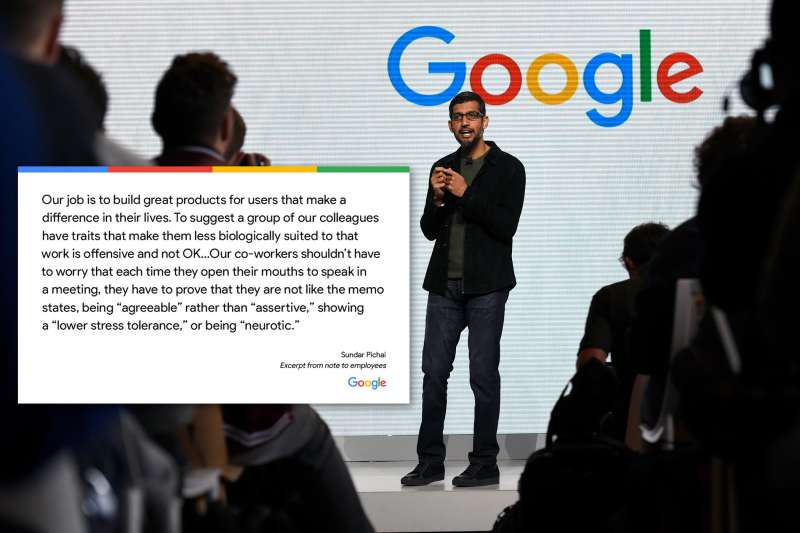Why ‘Free Speech’ Couldn’t Save That Google Engineer’s Job

After a memo proclaiming women are underrepresented in tech because of biological differences between the sexes and not because of discrimination went viral, a Google employee is now out of a job in what's become one of the most public firings of the year. As with anything provocative (and tech-related), social media is aflame with differing opinions on whether or not circulating a memo disparaging the core values of your company is a fireable offense.
So is it?
Those who don't support firing the engineer who wrote the memo say that dissenting opinions are good for businesses, and that no one should be fired for exercising their right to free speech. Unfortunately, you don't actually have any free speech rights in the workplace. The First Amendment limits the government's ability to suppress free speech, not an employer's. If you're an at-will employee, which most Americans are (unless you're in a union), your boss can fire you for pretty much any reason. (The only people exempted from this are those employed by the government.) The Constitution does not guarantee you employment.
As Bloomberg Businessweek notes, federal statutes "limit companies’ rights to fire or hire workers and prevent them from joining unions ... based only on race, religion, ethnicity, sex, age, and a few other protected categories." Beyond that, though, employees can be fired for pretty much any reason. (A few states have limited protections for political speech, per the American Bar Association.)
In a letter to employees, Google CEO Sundar Pichai said the engineer was fired not for simply expressing unpopular opinions, but for perpetuating "harmful gender stereotypes in our workplace" and violating the company's Code of Conduct, adding,
The memo has clearly impacted our co-workers, some of whom are hurting and feel judged based on their gender. Our co-workers shouldn’t have to worry that each time they open their mouths to speak in a meeting, they have to prove that they are not like the memo states, being “agreeable” rather than “assertive,” showing a “lower stress tolerance,” or being “neurotic.”
Creating a hostile work environment, as people are suggesting Damore did, is certainly grounds for termination. It also comes at a time when Silicon Valley is facing repeated criticism for gender discrimination (Uber anyone?) and for Google, this has become a PR and HR nightmare. His actions likely caused lost productivity company-wide, and as Pichai noted, are having tremendously negative impacts on his co-workers, including reportedly causing some to consider leaving the company.
The big issue with this case is that the memo was not circulated among a small group of people or posted privately. No one exposed the man's beliefs against his will. He purposefully sent them out to the entire company, on a work platform, and directly questioned the judgment of his managers and the leaders of the company, in addition to informing his female coworkers that he viewed them as biologically incapable of doing their job well. Whether or not companies and bosses should fire employees because of these types of actions and politically incorrect rhetoric is a different question entirely. The laws are clear, and it's not just Google where that type of behavior wouldn't be tolerated.
